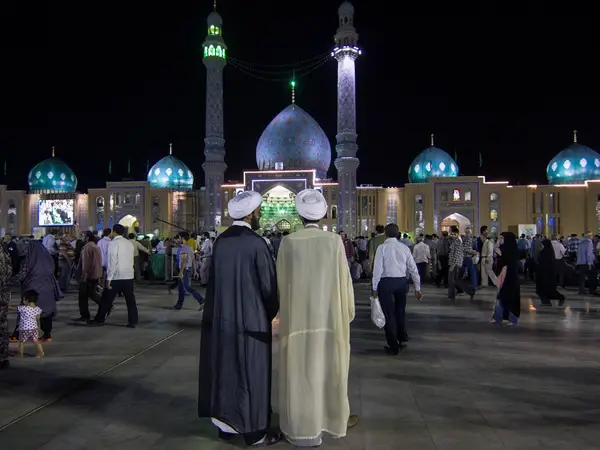Iranians are outraged by the regime’s hypocrisy after recent sex scandals surrounding a “morality” watchdog official and a cleric have been revealed.
In the past three weeks, Radio Gilan, a Telegram channel run by Payman Behboudi, a Germany-based journalist, has released three different videos that have raised a storm on Persian social media.
In the first video, a male City Council member of Bandar Anzali in the northern province of Gilan, was seen smoking opium and masturbating. The second video showed an official engaging in sex with a young man, and the third, released two days ago, shows a cleric engaged in sex with the husband of his wife’s sister. Radio Gilan has also published several screenshots of a sex chat between the cleric, Mehdi Haghshenas, and his brother-in-law.
Many social media users say they are outraged by the hypocrisy of the regime and its affiliated clerics and officials rather than the same-sex relationships between consenting adults.
The scandals of clerics and regime officials to many is a reminder of a famous 13th century verse by the nationally revered Hafez Shirazi who said clerics “shine” when they preach at the pulpit but when in private, they commit the same sins they tell the people to shun, an Iranian observer who asked not to be named told Iran International.
“Corruption has become institutionalized in the system and loyalty has turned into a commodity that can be bought and sold. But this is not the main problem: Value paradigms have been all lost too. What they preach to people is no longer credible to anyone anymore, even to many of their diehard supporters,” he added.
Haghshenas whose sex chats and video of sex with his brother-in-law has raised a storm on social media was appointed as the secretary of Gilan headquarters of the state organization for amr-e be marouf, that is, calling others to enjoin what is good and forbid them from doing what is wrong.
The official in charge of promoting Islamic values held the position until a journalist filed a complaint against him with the Special Court for Clergy and presented his sex chats, which the court apparently found authentic, as evidence.
Radio Gilan claims that Ayatollah Rasoul Falahati, Supreme Leader Ali Khamenei’s representative in the province, helped sweep the case under the carpet so Haghshenas was removed from his position without further punishments.
In December 2017, Vida Movahed, a young woman, removed her white headscarf, put it on a stick and climbed on top of a utility box on a busy Tehran street waving the stick. She was immediately arrested and held for a month for “injuring” the feelings of the society by her “immoral action”. A photo of her protest action went viral on social media and sparked a movement against compulsory hijab that came to be known as White Wednesdays.
Haghshenas staged a protest against Movahed’s “immorality” holding a banner that said, “I Am a Revolutionary” while standing on a pedestal on the street to mimic Movahed’s action.
Iran’s sharia-based penal code prescribes a death sentence for penetrative same-sex relations between adult men. Non-penetrative sexual acts are punished with lashes until the fourth offense, when they are punished with death. The sentence has been carried out in several cases including in November 2005 when the Islamic Republic publicly hung two men, Mokhtar N. (24) and Ali A. (25), in Gorgan in northern Iran.
Sexual acts between women, which are defined differently, are punished with lashes until the fourth offense, when they are also punished with death.
“These abuses have created an atmosphere of terror for lesbians, gays, bisexuals and transgender people throughout Iran,” said Jessica Stern, a research with the Lesbian, Gay, Bisexual and Transgender Rights Program at Human Rights Watch at the time of the execution of the two young men.
